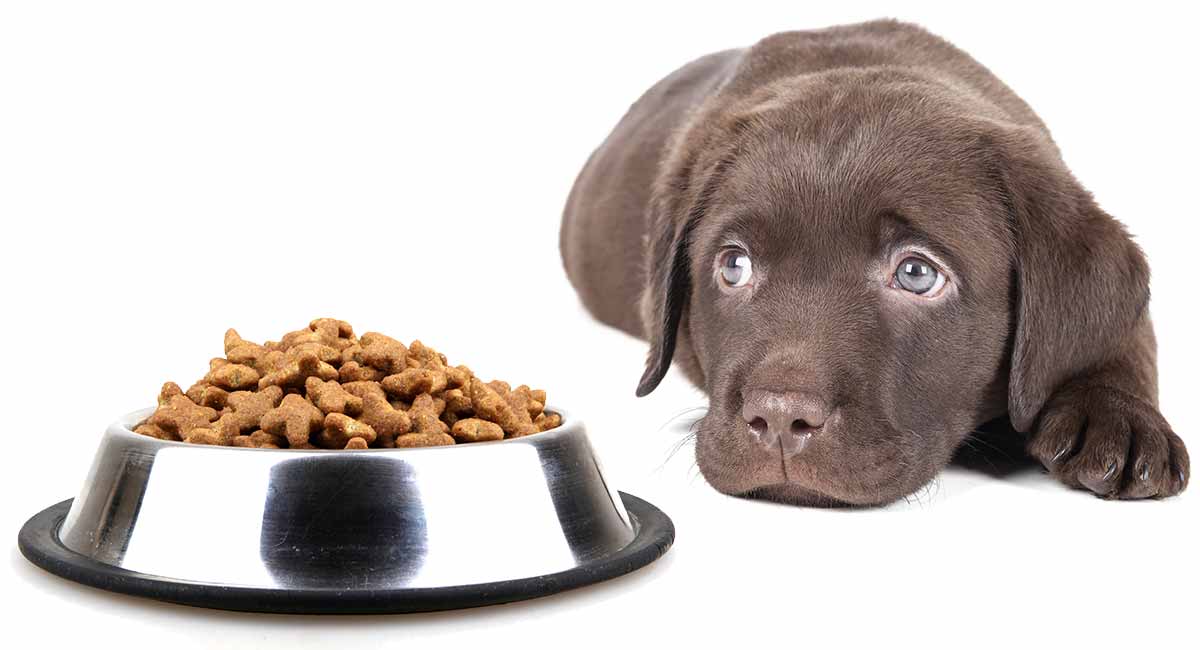If your dog has no appetite, feed them easily digestible, bland foods like boiled chicken and rice to help settle their stomach and provide essential nutrients. When a dog is sick and not eating, it’s important to offer small, frequent meals to entice them to eat and prevent further stomach upset.
When a dog is unwell, it can be concerning and distressing. In these situations, providing a suitable diet for your sick pet is crucial. To help your furry friend regain their strength and energy, feeding them the right foods is essential.
You’ll learn about the best ways to care for a sick dog with no appetite, including tips for feeding, suggested foods, and additional measures to support their recovery. By following these guidelines, you can ensure that your beloved pet receives the proper nourishment and care they need during this challenging time.
What To Feed A Sick Dog With No Appetite
Understanding the underlying issues: Sick dogs may lose their appetite due to various underlying issues such as illness, pain, stress, or medication side effects. It’s crucial to identify the root cause before addressing their diet.
Factors affecting a dog’s appetite: A dog’s appetite can be affected by factors like the type and severity of illness, age, breed, and individual preferences. It’s important to consider these factors when choosing the right food for a sick dog with no appetite.
Identifying Symptoms And Causes
When it comes to recognizing the signs of appetite loss in a sick dog, there are several key indicators to look out for. Common symptoms may include lethargy, vomiting, diarrhea, or dehydration. Additionally, dogs suffering from fever or pain may also experience a reduced appetite. In such cases, it’s important to consult a veterinarian to determine the underlying cause.
Illnesses such as gastrointestinal issues, infections, organ dysfunction, or dental problems can all contribute to a dog’s loss of appetite. Moreover, underlying chronic conditions like cancer or renal disease may also be responsible for appetite suppression. It’s crucial to address these health concerns promptly to ensure the well-being of the sick dog.
Comfort Foods For Unwell Canines
When caring for a sick dog with no appetite, it is crucial to offer them comforting and nutritious foods. Homemade options, such as boiled chicken and rice, can be appealing and easily digestible. Additionally, bone broth provides essential nutrients and hydration. To stimulate their appetite, consider store-bought options like canned pumpkin or high-quality wet dog food. It’s essential to consult with a veterinarian before introducing any new foods, especially if your dog has specific dietary restrictions or health conditions.
Easy-to-digest Meals
What to Feed a Sick Dog With No Appetite
When a dog is feeling under the weather and has no appetite, it’s important to provide easy-to-digest meals that are gentle on their stomach. Offering bland diets such as boiled chicken and rice or a mixture of cooked pumpkin and lean ground turkey can help entice a sick dog to eat. These recipes are known for their appeal to dogs with decreased appetites due to illness. Additionally, incorporating bone broth into the meals can provide gentle nourishment and help with hydration. It’s important to consult with a veterinarian to ensure the meals are appropriate for the dog’s specific condition.
Appetizing Food Toppers
When it comes to feeding a sick dog with no appetite, it’s important to focus on appetizing food toppers. Using flavors to entice eating can be effective in stimulating a dog’s appetite. Natural and healthy appetite stimulants such as bone broth, plain chicken, or low-sodium beef broth can help entice a sick dog to eat. Additionally, incorporating food toppers with strong aromas, such as a small amount of tuna or sardines, can also encourage a dog to eat. It’s important to ensure that any food offered is appropriate for a dog’s condition and to consult a veterinarian for specific dietary recommendations.
Hydration And Its Importance
Keeping your dog hydrated is crucial for their recovery, especially when they have no appetite. Dehydration can exacerbate illness and lead to further complications. Offering broths and fluids can help in maintaining their hydration levels. You can also consider diet alternatives such as chicken or beef broth to entice your dog to drink.
Precise Nutrition For Recovery
When a dog is sick and has no appetite, it is crucial to provide precise nutrition to support their recovery. Balancing essential vitamins and minerals is essential to aid in the healing process. Ensure the diet includes key nutrients such as vitamin C, vitamin E, and omega-3 fatty acids to boost the immune system and aid in tissue repair. Adjusting portion sizes and feeding frequency is also important to provide adequate sustenance without overwhelming the dog’s weakened digestive system. Offering small, frequent meals rather than larger portions can help stimulate the dog’s appetite and maintain their energy levels. Providing a nutrient-dense diet that is easily digestible is crucial for a sick dog to regain strength and recover promptly.
Specialized Commercial Diets
Specialized Commercial Diets: For dogs with specific health issues or appetite loss, prescription foods formulated for various ailments can be beneficial. These diets are specially designed to address the nutritional needs of sick dogs and may come in various forms such as canned, dry, or semi-moist food. Reading labels and conducting ingredient analysis is crucial when choosing the right diet for your sick dog. Look for high-quality proteins, essential vitamins, and minerals to support your dog’s recovery. It’s important to consult with a veterinarian to determine the best commercial diet for your dog’s condition.
Supplemental Support
When your sick dog has no appetite, it’s important to provide supplemental support to aid in their recovery. Probiotics can help restore the balance of good bacteria in the gut, which is especially beneficial if your dog has been on antibiotics. These “good” bacteria can aid in digestion and nutrient absorption. Additionally, certain vitamins, such as vitamin C and E, can support the immune system and help your dog fight off illness. Providing a nutrient-dense, easily digestible diet is essential to ensure they are getting the necessary nourishment. It’s important to consult with a veterinarian to determine the best course of action for your individual dog’s needs.
Adjusting The Feeding Environment
When feeding a sick dog with no appetite, it’s essential to create a stress-free mealtime environment. Routine and consistency play a crucial role in helping your dog feel comfortable and secure during mealtimes, which can encourage them to eat. Try to keep the feeding area quiet and free from distractions. Additionally, using the same feeding bowls and feeding at the same times each day can provide a sense of comfort and predictability for your dog. It’s also important to offer their favorite foods in small, frequent meals to entice them to eat. Remember to be patient and gentle, ensuring mealtime remains a positive experience for your furry friend.
Encouraging Eating Through Interaction
Hand feeding can be a useful technique to encourage a sick dog to eat. By offering small amounts of food directly from your hand, you can provide comfort and support to the dog. This approach also allows for positive reinforcement as you can offer praise and encouragement during the feeding process. By associating food with positive interactions, you can help create an appetite in a dog that may be feeling unwell. This method can also help in building trust and strengthening the bond between the dog and its owner, which can be particularly beneficial during times of illness.
Monitoring And Adapting To Changes
When a dog is sick and not eating, it’s important to monitor its progress closely as adequate nutrition is vital for recovery. Keep a record of your dog’s appetite, energy levels, and any symptoms. Consult with a veterinarian if there is no improvement in its condition or if you notice significant changes in behavior. They can provide professional advice and recommend appropriate dietary adjustments. Additionally, pay attention to any discomfort or pain your dog may be experiencing, as this may contribute to its lack of appetite. Proper monitoring and quick veterinary intervention can make a significant difference in your dog’s recovery process.

Credit: www.thelabradorsite.com
Frequently Asked Questions For What To Feed A Sick Dog With No Appetite
What Are Some Suitable Food Options For A Sick Dog With No Appetite?
If your dog is refusing to eat, try offering bland, easily digestible options like boiled chicken or rice. You can also consider specialized dog food designed for sick or recovering dogs, or consult your veterinarian for specific dietary recommendations.
How Can I Encourage My Sick Dog To Eat When They Have No Appetite?
Encouraging a sick dog to eat can be challenging, but you can try warming their food slightly to enhance its aroma, hand-feeding them, or offering small, frequent meals rather than a large portion. If your dog still refuses to eat, consult your vet for further guidance.
Should I Be Concerned If My Sick Dog Refuses To Eat For An Extended Period?
Yes, prolonged loss of appetite in dogs can lead to serious health issues. If your dog continues to refuse food for more than 24 hours, it’s crucial to seek professional veterinary advice. Loss of appetite can be a symptom of an underlying health problem that should be addressed promptly.
Conclusion
When caring for a sick dog with no appetite, it’s essential to provide nutritious, easily digestible food options that address their specific health needs. Understanding the possible causes of their lack of appetite and consulting with a veterinarian are crucial in devising a feeding plan that supports the dog’s recovery and overall well-being.



